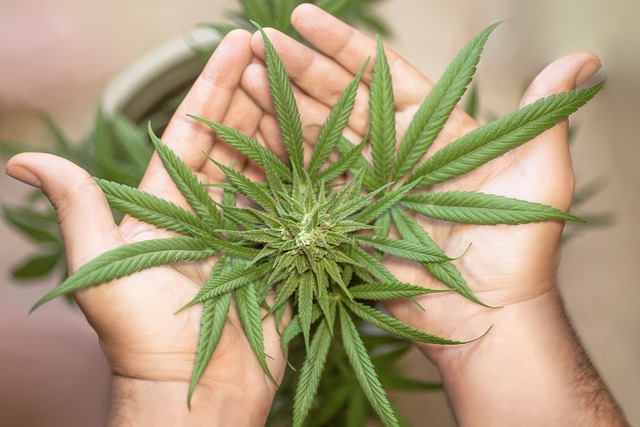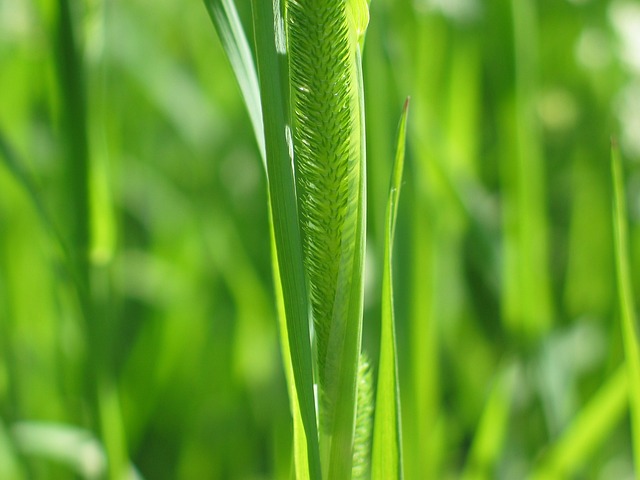2023 has seen THCA (Tetrahydrocannabinolic Acid), a non-psychoactive precursor to THC, gain prominence in Colorado's cannabis industry. Legal under both medical and recreational state laws adhering to the Colorado Marijuana Code, THCA is recognized for its potential therapeutic properties, including anti-inflammatory, anti-nausea, appetite-stimulating, and neuroprotective effects. Unlike its psychoactive form THC, THCA does not cause a 'high,' making it an appealing option for those seeking cannabis's health benefits without the mind-altering effects. Colorado's progressive policies have fostered a safe and regulated environment for the cultivation, harvesting, and processing of THCA, spurring research into its applications and benefits. As a result, THCA flower has become a focal point within Colorado's burgeoning cannabis industry, offering users the opportunity to experience its wellness properties without psychoactive influence. THCA's legal status in Colorado stands out as a significant development in the cannabis sector, reflecting the state's commitment to exploring and advancing the use of cannabinoids for health and well-being.
Explore the intricate world of cannabinoids with a focus on THCA flower, a naturally occurring form of tetrahydrocannabinolic acid found within the Cannabis sativa plant. This article delves into the multifaceted aspects of THCA, from its chemical structure and historical significance in Colorado’s burgeoning cannabis culture to the legal landscape governing its use within the state. Discover the myriad benefits associated with THCA flower consumption, the optimal cultivation techniques for high-quality buds, and the entourage effect that highlights the interplay between cannabinoids and terpenes. We will also compare THCA’s effects with those of Delta-9 THC, guide you through responsible use, and provide insights into the latest research on its medical applications. As THCA legal status in Colorado continues to evolve, stay informed on how this compound is reshaping the cannabis industry. Join us as we unravel the story of THCA flower, a cannabinoid with potential that’s as promising as it is profound.
THCA Flower: A Comprehensive Overview

THCA, or Tetrahydrocannabinolic Acid, is a non-psychoactive cannabinoid found in raw or uncured cannabis flowers, which is the precursor to THC, the psychoactive compound most are familiar with. As of my knowledge cutoff in early 2023, THCA is legal in Colorado under state laws for both medicinal and recreational use, provided it complies with the Colorado Marijuana Code. This cannabinoid has garnered attention due to its potential therapeutic properties, which include anti-inflammatory, anti-nausea, appetite stimulating, and neuroprotective effects. In Colorado, THCA flower is cultivated, harvested, and processed under strict regulations that ensure its safety and efficacy. Consumers in the state can legally purchase THCA flowers from licensed dispensaries for personal use. When consumed, THCA doesn’t produce the psychoactive ‘high’ associated with THC; instead, it is believed to offer a range of benefits without the psychoactive effects. This makes it an attractive option for those seeking the potential therapeutic properties of cannabis without the mind-altering experience. The legal landscape in Colorado allows for research and innovation around THCA, contributing to a growing body of knowledge on its uses and effects. As such, THCA flower has become a focal point in the cannabis industry within the state, offering a unique opportunity for both medical and recreational users to explore its potential benefits.
The Chemical Structure of THCA and Its Significance

Tetrahydrocannabinolic acid (THCA) is the non-psychoactive precursor to THC, the primary psychoactive component found in cannabis. The chemical structure of THCA includes a pentyl ring system fused to an oxo-group at the cyclohexene position, which differentiates it from its psychoactive counterpart, THC. This structural difference means that THCA does not bind as effectively to the cannabinoid receptors in the body, thus lacking the intoxicating effects associated with cannabis consumption. However, recent studies have highlighted the potential therapeutic benefits of THCA, including anti-inflammatory and neuroprotective properties, which are gaining attention from researchers and consumers alike. In Colorado, where legislation has decriminalized cannabis, THCA’s legal status aligns with its non-psychoactive nature, allowing for a broader exploration of its potential uses within the state’s regulated market. The significance of THCA’s chemical structure lies not only in its potential health applications but also in its role as a natural constituent of the cannabis plant, making it a subject of considerable scientific interest and practical application, especially in Colorado where its legal status facilitates research and commerce related to this unique cannabinoid.
THCA flowers, a precursor to the well-known psychoactive compound THC, have garnered significant attention within the cannabis community, particularly in regions where their presence is legal, such as Colorado. This comprehensive overview and exploration of the chemical structure of THCA underscore its potential role in various applications, from therapeutic uses to novel product development. As legislative changes continue to shape the landscape of cannabis cultivation and research, understanding the intricacies of THCA becomes increasingly vital for those navigating this evolving sector. The insights presented here contribute to a growing body of knowledge that promises to expand our use and appreciation of cannabinoids, with special attention to THCA’s legal status and uses in Colorado.
